Immune Vaccine

Can vaccines be used to treat cancer or other non-infectious diseases ?
Vaccines are traditionally used to prevent infectious diseases by stimulating the immune system to recognize and attack specific pathogens. The possibility of using vaccines for the treatment of cancer or other non-infectious diseases is being explored, with a focus on modulating the immune response rather than stimulating it. Cancer vaccines, including preventive and therapeutic types, aim to stimulate the immune system to recognize and destroy tumor cells. For autoimmune diseases, researchers are exploring ways to use vaccines to dampen overactive immune responses or retrain the immune system. Vaccines are also being investigated for their potential in treating other chronic diseases such as Alzheimer's and heart disease. While promising, the application of vaccines in treating non-infectious diseases faces significant challenges, including identifying unique targets and balancing immune responses. Advancements in immunology and vaccine technology offer hope for new treatments that could benefit millions worldwide.

What are the latest developments in vaccine research and development ?
The text discusses the latest developments in vaccine research and development, including the creation of new vaccines for COVID-19, cancer, and other infectious diseases. It also highlights the challenges and opportunities facing vaccine researchers and developers, such as ensuring accessibility and affordability of vaccines and addressing concerns about vaccine safety and efficacy. The text concludes by emphasizing the importance of continued investment in vaccine research and development to improve global health outcomes.
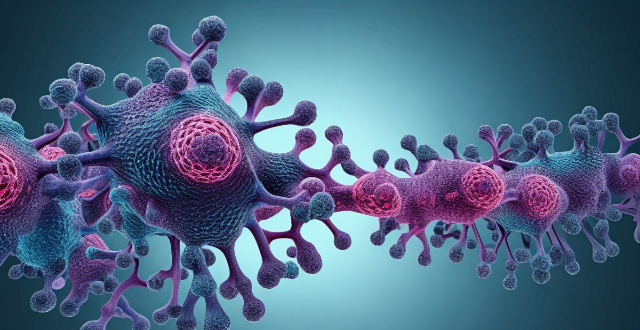
Is it possible to create a universal flu vaccine that works against all strains of the virus ?
Is it possible to create a universal flu vaccine? The influenza virus is highly adaptable and mutates rapidly, making it challenging to develop a vaccine that works against all strains. However, recent advancements in research and technology have brought us closer to achieving this goal. Strategies for developing a universal flu vaccine include targeting conserved proteins within the virus, using molecular mimicry to trick the immune system into recognizing multiple strains, and utilizing mRNA technology. While there may still be obstacles to overcome, the potential benefits of a universal flu vaccine make it an exciting area of research.

How long does it typically take to develop a new vaccine ?
Developing a new vaccine is a complex and time-consuming process that involves multiple stages of research, testing, and approval. It typically takes several years to develop a new vaccine, with the duration varying depending on factors such as the type of pathogen being targeted, the availability of existing research, and regulatory requirements. The process includes research and development, preclinical testing, clinical trials in humans (Phases I, II, and III), regulatory approval, and manufacturing and distribution.

What challenges have been faced in vaccine distribution ?
Vaccine distribution faces challenges in manufacturing capacity, logistics, geopolitics, regulatory approvals, public perception, financial constraints, technology, and coordination efforts. Addressing these requires global collaboration to ensure equitable access to vaccines worldwide.

Why is vaccine equity important for global health ?
Vaccine equity is crucial for global health as it ensures fair distribution of life-saving vaccines worldwide. It helps prevent disease outbreaks, reduce health inequalities, promote economic stability, and improve overall health outcomes. By ensuring everyone has access to vaccines, we can create a healthier world for all.

Can exercise boost the immune system ?
Exercise can indeed boost the immune system through various mechanisms, including enhanced circulation, reduced inflammation, weight management, stress reduction, improved sleep, increased self-esteem and mental health, microbiome diversity, temperature regulation, prevention of chronic diseases, and social interaction. Regular moderate exercise is generally considered beneficial for the immune system, but it's essential to consult with healthcare professionals to determine the appropriate amount and intensity of exercise for individual needs and circumstances.
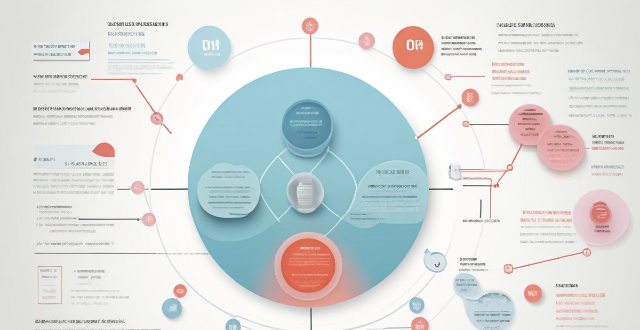
How can wealthy nations help achieve vaccine equity ?
Wealthy nations can help achieve vaccine equity by donating vaccines, providing financial support, sharing technology and knowledge, improving global health infrastructure, advocating for fair distribution, and collaborating on research and development.

Is there a vaccine for COVID-19 ?
Vaccines for COVID-19: Several vaccines have been developed to prevent or treat COVID-19, including Pfizer's Comirnaty, Moderna's mRNA-1273, Johnson & Johnson's Janssen/Johnson & Johnson COVID-19 vaccine, and AstraZeneca's COVID-19 vaccine. These vaccines have been shown to be effective at preventing severe illness and hospitalization due to COVID-19, but may not provide complete protection against infection or transmission of the virus. Vaccination remains one of the most important tools we have to combat the COVID-19 pandemic.
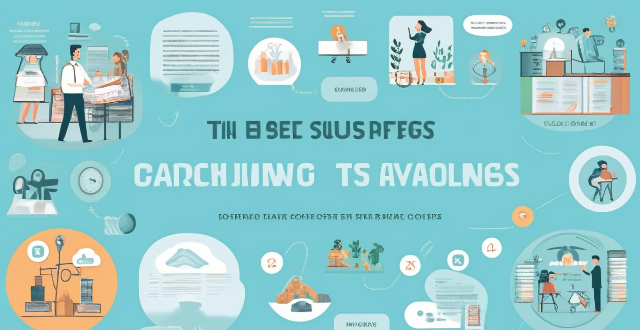
What is the role of international organizations in promoting vaccine equity ?
This text discusses the role of international organizations in promoting vaccine equity by ensuring everyone has equal access to vaccines regardless of their socioeconomic status or geographic location. Key players such as the WHO, UNICEF, GAVI, World Bank, and WTO engage in various activities including advocacy, policy making, funding, research and development, logistics, distribution, monitoring, and evaluation. However, challenges such as political will, financial constraints, infrastructure deficits, and information disparities can hinder progress. The text concludes that overcoming these obstacles requires sustained collaboration and innovative solutions from these organizations and their partners worldwide.

Can vaccines protect against new virus variants ?
**Can Vaccines Protect Against New Virus Variants?** The ability of vaccines to protect against new virus variants depends on various factors, including the type of vaccine, the nature of the virus, and the rate of mutation. While some vaccines may provide cross-reactivity and adaptive immunity against multiple strains, others may require updates or booster shots to maintain protection against emerging variants. Public health measures such as masking, social distancing, and hand hygiene remain crucial in combination with vaccination efforts. Continuous global surveillance is essential for developing effective strategies to deal with new variants.

How can technology be used to promote vaccine equity ?
Technology can promote vaccine equity by improving accessibility, monitoring, and distribution. Digital awareness campaigns, telemedicine services, real-time data tracking, data analytics, automated logistics systems, and cold chain management are some of the ways technology can be used to achieve this goal. By leveraging technology, we can bridge the gap between the haves and the have-nots, making vaccines accessible to all sections of society.

What is the process of vaccine allocation ?
Vaccine allocation is a crucial step in the fight against infectious diseases, such as COVID-19. It involves distributing vaccines to those who need them most, ensuring equitable access and maximizing public health benefits. The process includes determining priorities, identifying supply sources, allocating doses, distributing vaccines, and administration and tracking. By following these steps, we can ensure that vaccines are distributed equitably and effectively, helping to control the spread of infectious diseases and protect public health.

Is it true that certain superfoods can boost your immune system ?
Incorporating superfoods like citrus fruits, garlic, ginger, spinach, yogurt, nuts and seeds, blueberries, and turmeric into your diet can help support immune health by providing key nutrients such as vitamin C, vitamin D, zinc, protein, and antioxidants. These foods offer a range of benefits including boosting white blood cell production, reducing inflammation, supporting digestive health, and protecting against oxidative stress. However, it's important to maintain a balanced diet and lifestyle for overall immune support.
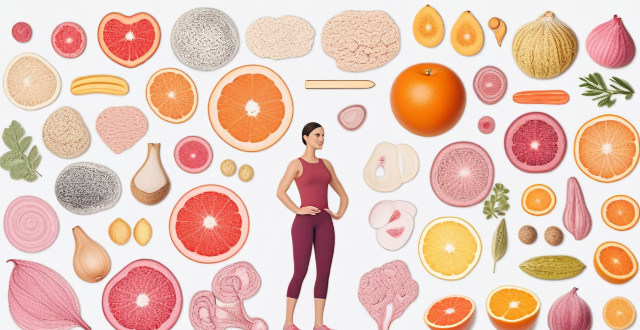
Can excessive training have negative effects on the immune system ?
Excessive training, or overtraining, can have negative effects on the immune system. Regular exercise enhances immune function by stimulating antibody and white blood cell production, reducing inflammation, and improving circulation. However, excessive training can cause chronic inflammation, oxidative stress, and hormonal imbalances that suppress immune function. Signs of overtraining syndrome include chronic fatigue, mood changes, and increased susceptibility to illness. To prevent overtraining and maintain immune health, individuals should follow a balanced training program, prioritize sleep, eat a nutrient-rich diet, and manage stress levels.
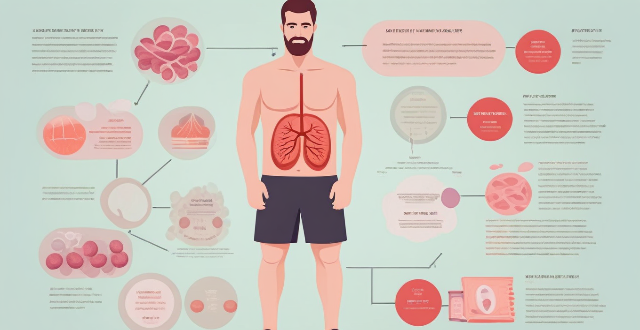
How does regular exercise contribute to boosting the immune system ?
Regular exercise has numerous health benefits, including boosting the immune system. It promotes increased blood circulation, reduces inflammation, helps in weight management, reduces stress, improves sleep quality, enhances gut health, increases antioxidant capacity, supports cardiovascular health, enhances mental health, and contributes to increased longevity. Incorporating regular physical activity into your lifestyle can support a strong and resilient immune system.

What are the side effects of the COVID-19 vaccine ?
The COVID-19 vaccine has been a topic of great interest and concern in recent months. While many people have received the vaccine with minimal side effects, others have reported experiencing more severe reactions. The most common side effects reported after receiving the COVID-19 vaccine include pain, redness, or swelling at the injection site, fatigue, fever, headache, muscle pain, nausea, rash, chills, dizziness, and joint pain. However, there have also been reports of serious side effects associated with the COVID-19 vaccine, including blood clots, angioedema, myocarditis, and Guillain-Barré Syndrome. It is important to note that these cases are extremely rare and far outweighed by the benefits of receiving the vaccine.

How does vaccine inequality impact developing countries ?
Vaccine inequality significantly impacts developing countries by affecting their public health, economy, and social stability. Limited access to vaccines increases mortality and morbidity rates, weakens healthcare systems, and leads to economic losses and limited growth. It also exacerbates poverty and inequality and can contribute to social unrest and instability. Addressing vaccine inequality is crucial for global health equity and sustainable development.

What are the potential consequences of unequal vaccine distribution ?
The text discusses the potential consequences of unequal vaccine distribution, which include continued transmission and mutations of the virus, prolonged pandemic, economic disparities, educational setbacks, strain on healthcare systems, social inequality, global travel restrictions, political tensions, increased antimicrobial resistance, and mental health impact. These consequences highlight the importance of equitable vaccine distribution to effectively and efficiently end the COVID-19 pandemic.

What role do governments play in vaccine allocation ?
Governments have a crucial role in vaccine allocation, including planning and strategy development, resource allocation, prioritization and targeting, ensuring equity and accessibility, and maintaining transparency and accountability. They collaborate with healthcare providers and pharmaceutical companies to ensure a smooth distribution process, invest in building capacity within the healthcare system, determine priority groups for vaccination based on various criteria, address issues related to vaccine hesitancy and misinformation, provide regular updates on vaccine availability and distribution progress, and establish mechanisms for accountability. By effectively managing vaccine allocation, governments can protect public health and control the spread of infectious diseases.

What are the ethical considerations in vaccine distribution ?
Vaccine distribution is a complex process that involves several ethical considerations. These considerations are crucial to ensure that the distribution is fair, just, and equitable. Here are some of the key ethical considerations in vaccine distribution: ## Fairness One of the most important ethical considerations in vaccine distribution is fairness. This means that everyone should have an equal opportunity to access the vaccine, regardless of their socioeconomic status, race, ethnicity, or geographic location. To achieve this, it is essential to establish transparent criteria for prioritizing groups for vaccination. ### Criteria for Prioritization - **Healthcare workers and first responders**: These individuals are at high risk of exposure to the virus and play a critical role in managing the pandemic. - **High-risk individuals**: People with underlying medical conditions or compromised immune systems are more susceptible to severe illness from COVID-19. - **Vulnerable populations**: Elderly adults, people living in congregate settings (such as prisons or homeless shelters), and those with limited access to healthcare should be prioritized. - **Essential workers**: Workers in critical infrastructure sectors, such as transportation, food production, and energy, should be given priority to maintain societal functioning. ## Justice Another ethical consideration in vaccine distribution is justice. This involves ensuring that the distribution process does not exacerbate existing inequalities or create new ones. For example, if only wealthy countries receive vaccines while poorer nations are left without adequate access, this could perpetuate global health disparities. ### Addressing Inequalities - **Global cooperation**: International collaboration is essential to ensure equitable vaccine distribution worldwide. - **Financial support**: Wealthy nations and organizations should provide financial assistance to help low-income countries acquire vaccines. - **Technology transfer**: Sharing knowledge and technology related to vaccine production can help increase global capacity and reduce dependence on a few manufacturers. ## Transparency Transparency is also a crucial ethical consideration in vaccine distribution. This includes being open about the decision-making process, criteria for prioritization, and progress in vaccine distribution. Transparency helps build trust among the public and ensures that the process is accountable and subject to scrutiny. ### Enhancing Transparency - **Public communication**: Regular updates on vaccine distribution plans and progress should be provided through various channels, such as government websites, social media, and press conferences. - **Stakeholder involvement**: Engaging with community leaders, advocacy groups, and other stakeholders can help ensure that diverse perspectives are considered in the decision-making process. - **Data sharing**: Providing access to data on vaccine supply, allocation, and administration can help monitor progress and identify areas for improvement.
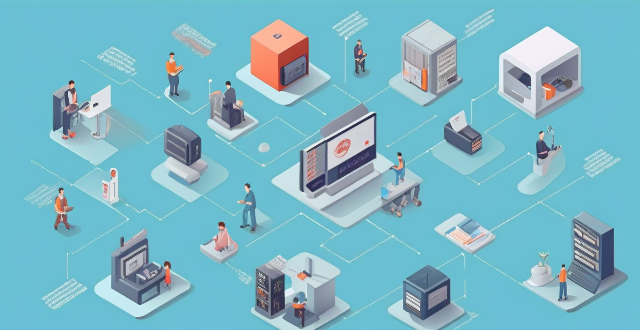
How can technology help in ensuring equitable vaccine distribution ?
Technology plays a crucial role in ensuring equitable vaccine distribution by providing data collection and analysis tools, managing logistics, and improving accessibility and outreach. Examples of technologies used for data collection and analysis include mobile apps, GPS tracking, and cloud computing. Technologies used for logistics management include RFID tags, drones, and automated warehouses. Examples of technologies used for accessibility and outreach include social media platforms, telehealth services, and chatbots. By leveraging these technologies, we can create a more efficient and effective vaccine distribution system that benefits everyone equally.

How effective is the COVID-19 vaccine ?
The effectiveness of the COVID-19 vaccine varies depending on the type of vaccine and the population being vaccinated. mRNA vaccines have an efficacy rate of around 95% against hospitalization and death due to COVID-19, while adenovirus vector vaccines have an efficacy rate of around 66% and inactivated virus vaccines have an efficacy rate of around 70%. Older adults and people with underlying health conditions may require additional doses or booster shots to achieve optimal protection against severe cases of COVID-19. Populations with higher rates of transmission may also require additional doses or booster shots to achieve optimal protection against COVID-19.

What ethical considerations are involved in vaccine distribution equity ?
Vaccine distribution equity is a crucial issue that requires careful consideration of ethical principles such as justice, utilitarianism, autonomy, and transparency. Justice demands that vaccines be distributed based on medical need rather than wealth or social status, while utilitarianism emphasizes maximizing overall well-being by prioritizing essential workers and those who can contribute most to society. Autonomy requires respecting individuals' choices about whether or not to receive a vaccine through informed consent and voluntary participation. Transparency is essential for building trust and promoting public confidence in vaccine distribution efforts through public communication and accountability mechanisms. Overall, ensuring equitable distribution of vaccines requires balancing these ethical considerations to promote fairness, maximize benefits, respect individual autonomy, and maintain transparency throughout the process.

How can I improve my diet to boost my immune system ?
Improving your diet is one of the best ways to boost your immune system. Here are some tips on how you can do that: ## Eat a Variety of Foods Eating a variety of foods ensures that you get all the essential nutrients your body needs. This includes fruits, vegetables, whole grains, lean proteins, and healthy fats. Aim for at least five servings of fruits and vegetables per day. ### Fruits and Vegetables - Apples - Bananas - Berries - Broccoli - Carrots - Spinach ### Whole Grains - Oats - Quinoa - Brown Rice ### Lean Proteins - Chicken breast - Fish (such as salmon or tuna) - Legumes (such as lentils or chickpeas) ### Healthy Fats - Avocados - Nuts (such as almonds or walnuts) - Seeds (such as chia or flaxseed) ## Stay Hydrated Drinking enough water is crucial for maintaining a healthy immune system. Aim for at least eight glasses of water per day, and more if you're active or it's hot outside. You can also stay hydrated by drinking herbal teas or eating water-rich foods like cucumbers, melons, and strawberries. ## Limit Processed Foods and Sugary Drinks Processed foods and sugary drinks can weaken your immune system by causing inflammation in your body. Try to limit these foods and drinks as much as possible, and opt for whole, nutrient-dense foods instead. ## Consider Taking Supplements If you're not getting enough vitamins and minerals from your diet, consider taking supplements. Some common supplements that may help boost your immune system include vitamin C, vitamin D, zinc, and probiotics. However, be sure to talk to your doctor before starting any new supplements.

How does vaccine distribution impact the economy ?
This text explores the relationship between vaccine distribution and its economic impacts, including public health, labor force participation, consumer behavior, and global supply chains. It highlights how equitable vaccine distribution can shape the trajectory of economic recovery by reducing transmission and mortality rates, increasing consumer confidence and spending, stabilizing the labor market, creating employment opportunities, shifting consumer preferences towards local products and services, stimulating discretionary spending on entertainment and travel, restoring supply chains and normalizing trade through reduced tariffs and increased international cooperation. The author emphasizes the importance of recognizing these relationships and crafting interventions that facilitate robust and sustained economic upturns.

What is the role of clinical trials in vaccine development ?
The article discusses the importance of clinical trials in vaccine development, emphasizing that they are crucial for ensuring vaccine safety and efficacy. It outlines the different phases of clinical trials, including Phase I (safety testing), Phase II (efficacy testing), Phase III (large-scale testing), and post-marketing surveillance. The article highlights that each phase plays a vital role in evaluating the safety, efficacy, and long-term effects of vaccines. It also encourages individuals to participate in clinical trials to contribute to advancing medical research and improving public health outcomes.
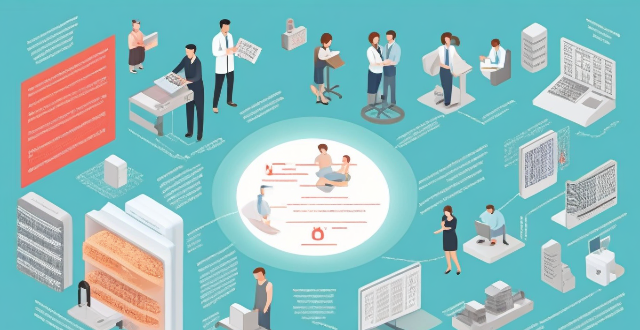
How does vaccine distribution affect public health ?
Vaccine distribution is crucial for global health, reducing disease incidence and healthcare costs while increasing productivity. Challenges include inequitable access, logistical complexities, and public perception issues.

Is there a specific duration or intensity of exercise needed to improve immune function ?
The relationship between exercise and immune function is complex, but research suggests that regular physical activity can enhance the immune system. However, both the duration and intensity of exercise play significant roles in achieving this beneficial effect. The American Heart Association recommends at least 150 minutes of moderate-intensity aerobic activity or 75 minutes of vigorous-intensity activity per week for adults. Engaging in prolonged periods of endurance exercise can temporarily suppress immune function due to increased stress on the body. Light activities like walking or yoga can still offer immune benefits by reducing stress and promoting overall health. Regular moderate to high-intensity exercises, such as jogging, cycling, or strength training, are generally considered optimal for enhancing immune function. Adequate rest and recovery are crucial for maintaining a healthy immune system. Combining different types of exercises (aerobic, strength training, flexibility work) can provide a well-rounded approach to enhancing immune function. Staying hydrated and consuming a balanced diet rich in nutrients supports both exercise performance and immune health. Other lifestyle habits, including sleep quality, stress management, and avoidance of harmful substances, also play a vital role in supporting immune function alongside exercise.
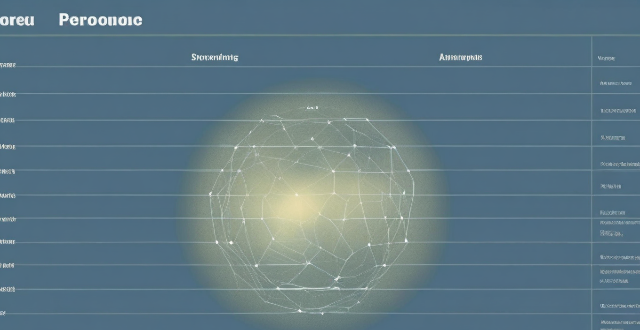
What role does the WHO play in promoting equitable vaccine distribution ?
The World Health Organization (WHO) is a key player in promoting equitable vaccine distribution globally. It does this through various programs such as the Vaccine Introduction Programme (VIP), partnerships like GAVI Alliance, and advocacy and policy development. The VIP helps countries plan and implement new vaccine introductions, while GAVI Alliance aims to increase access to vaccines in low-income countries. The WHO also advocates for policies that support equitable access to vaccines.